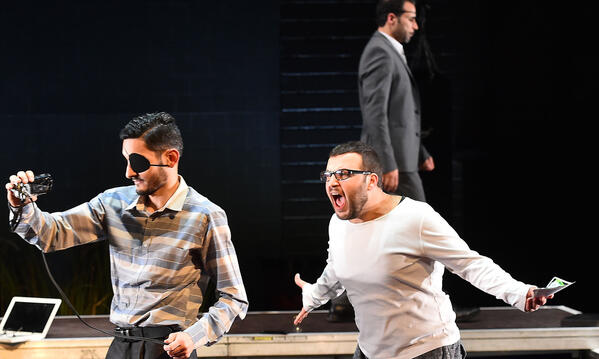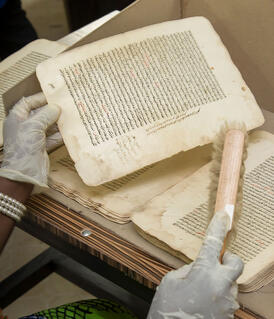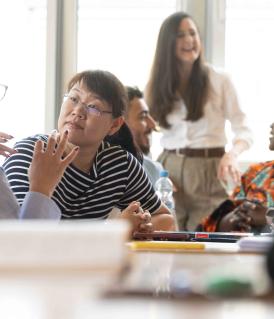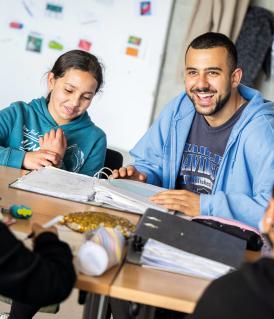Culture and integration

Cultural production in Germany is rooted in the country’s own traditions but has increasingly opened up to outside influences and developed a new narrative. Young artists with a migrant background have found forms of articulation that offer both musical and poetic ways of reacting to the clash and the merging of different origins and cultures. A definitive example of this is the work of the Maxim Gorki Theatre in Berlin Berlin Once a year, during the Berlinale film festival, the world of the silver screen focuses its attention on Berlin. And the city’s inhabitants are used to global interest. After all, the people of Berlin have lived in a capital city since 1458. However, there is also a shady side to the city’s history… Read more › , whose director Shermin Langhoff brought the notion of “post-migrant theatre” to cultural discourse.
In literature, too, there is a strong post-migrant current as represented by Nino Haratischwili, Abbas Khider and Saša Stanišić, to name but a few. Recognition of German-language authors who have a different mother tongue has increased thanks to initiatives like the Adelbert von Chamisso Prize, with which the Robert Bosch Foundation honours works that “are characterized by cultural change and which combine an extraordinary approach that enriches German literature with language”. Between 1985 and 2017 almost 80 writers from more than 20 countries of origin have gained such recognition.
New impulses from refugees
The major influx of people from Syria in particular since the outbreak of the civil war there in 2011, but also refugees from Afghanistan, Iraq and the countries of North Africa has resulted in new impulses for culture. German intermediary organizations and initiatives within civil society have picked up on these influences and linked up the migrants with creative figures from Germany, as, for example, in the temporary “Goethe-Institut Damascus” in Berlin Berlin Once a year, during the Berlinale film festival, the world of the silver screen focuses its attention on Berlin. And the city’s inhabitants are used to global interest. After all, the people of Berlin have lived in a capital city since 1458. However, there is also a shady side to the city’s history… Read more › . The Maxim Gorki Theatre created its own Exile Ensemble, and the program “Weiter Schreiben” (“Keep Writing”) has brought refugee authors and German writers together thanks to funding from various foundations.
Beyond the cultural sphere, the notion of “post-migration” has gained wider recognition within society, too. Sociologist Naika Foroutan from the Berlin Institute for Empirical Integration and Migration Research talks in general terms of the “new Germans”, who are characterized by the generation of new ideas for a diverse Germany and are increasingly organizing themselves in this spirit, for example within the media (“Neue deutsche Medienmacher”), civil society (“DeutschPlus”) and education (“Each One Teach One”).


